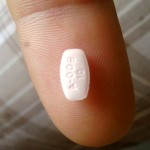
Aripiprazole (brand names Abilify and Aripiprex) is an atypical antipsychotic drug used to treat a number of mental health disorders including schizophrenia, depression and bipolar disorder.
This new guidance has been written by a group of Pan-European experts who have come together to review new clinical guidelines for the management of mania and the role of aripiprazole in its treatment. The report describes the consensus reached on how best to use aripiprazole in the treatment of mania.
Here’s what the report found:
- Current guidelines recommending aripiprazole for first-line treatment of mania have not generally translated to clinical practice.
- The panel agreed that clinicians may not feel sufficiently knowledgeable on how to use aripiprazole effectively in mania, and that the perception that aripiprazole is less sedating than other antipschotics may hamper its use.
- There was consensus about the importance of ensuring that clinicians understood the distinction between antimanic efficacy and sedation.
- Most acutely manic patients may require night-time sedation, but continuous daytime sedation is not necessarily indicated and may interfere with long-term compliance.
- If sedation is necessary, guidelines recommend the use of adjunctive benzodiazepines only for a short-time.
The authors concluded:
Clinical practice guidelines widely recommend aripiprazole as a first-line treatment for mania. Although clinical trials may not represent all patient subpopulations, they show that aripiprazole is well tolerated and has a long-term stabilizing potential.
The successful use of aripiprazole rests on using the appropriate initial dose, titrating and adjusting the dose as needed and using appropriate concomitant medication to minimize any short-term adverse effects.
Low incidence of sedation makes aripiprazole a reasonable long-term treatment choice. If short-term sedation is required an adjunctive sedative agent can be added and removed when no longer needed.
Clinical considerations should influence treatment choice, and a better distinction between sedation and antimanic effects should be an educational target aimed to overcome potential barriers for using non-sedative antimanic agents such as aripiprazole.
Goodwin GM, Abbar M, Schlaepfer TE, Grunze H, Licht RW, Bellivier F, Fountoulakis KN, Carlo Altamura A, Pitchot W, Agren H, Holsboer-Trachsler E, Vieta E. Aripiprazole in patients with bipolar mania and beyond: an update of practical guidance. Curr Med Res Opin. 2011 Oct 21. [PubMed abstract]

I was interested to read this article, as I am on abilify (ariprazole, not the other one), and so can comment from personal experience.
I am pleased to see that the guidance says adjust when necessary.
Why is it necessary at all to have an adjunctive sedative agent, and what does that mean – does it mean prescribing something else to counteract the effects of the medication? If it does, then I do not think it is necessary. Rather, more beneficial would be to lower the dose of the abilify.
I was put on abilify when I was said to be ‘manic’ and probably I was a little manic, but the psychiatrist put me on too high a dose – I was put on 15 mg and it was hopeless – I felt sleepy, so I reduced the dose myself. I told the psychiatrist that I wanted to reduce the dose too and that he had overprescribed for me. I also had to reject the prescription he made for me – with larger dose tablets or capsules – I could not swallow the larger size.
Also the psychiatrist took me off the venlafaxine I was on, and said to just cut it out. I did not think that was a good idea and sure enough I became really anxious again, and had feelings of worthlessness and that my life was not worth it.
I had a CPN who came to see me at that time and I explained the situation to her, and she asked the pscyhiatrist for me to go back on the venlafaxine, but he said no.
So I had to see the psychiatrist myself and get the venlafaxine put back on my prescription. He said it was too early for me to need it, for some reason, don’t know why he said that. I do take venlafaxine and find it very helpful for GAD.
I do not think that ariprazole needs to be prescribed at a high dose for people with bipolar condition. It can cause a complete change from a high to a complete low, and that is an awful condition to deal with.
I see on the internet that you can get abilify at a low dose of 2mg, is it generally available at less than that? Of course it is possible to cut the pill in half, one very good psychiatrist showed me that trick.
I would be interested in comments back from the team who just reviewed this use of the drug for mania. Actually, mania is a useful time for people with bipolar, and it should not be completely cut off, or the whole sense of optimism goes, and you have no energy and you do not want to do anything, so you do not get up, and you do not think there is any future, and you do not think your life is worthwhile.
Did any of these people who reviewed the use of the drug take it themselves, to find out the effect it gave them?
If not, why did they not have service users and carers on the panel to discuss the efficacy of this drug?
If you always treat people in the same way, you will not make progress.
I would also be interested to hear from any other users of abilify via this channel.